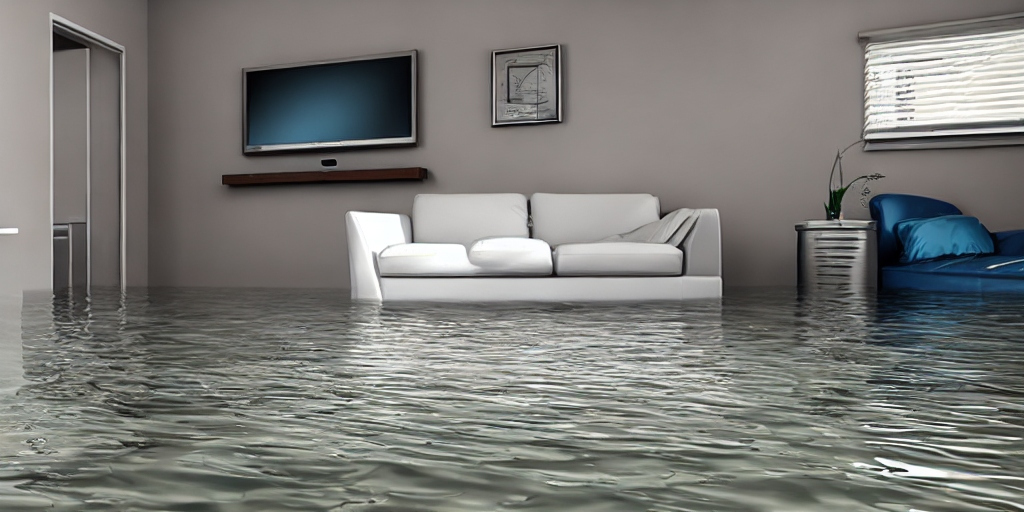Water damage can wreak havoc on your home, causing not only structural issues but also significant financial strain. Whether it’s from a burst pipe, a leaky roof, or a natural disaster, the consequences of water damage can be devastating. Understanding why water damage is so expensive, what you can do to address water damaged walls, how to deal with water damage in your home, and the extent of damage water can cause are crucial for homeowners facing this issue.
Why is Water Damage So Expensive?
The costs associated with water damage near me can quickly add up due to several factors. First and foremost, water damage often requires immediate attention to prevent further destruction. Emergency services such as water extraction, drying equipment rental, and mold remediation can be costly. Additionally, repairing or replacing damaged materials like drywall, flooring, and furniture contributes to the overall expense.
Moreover, hidden water damage behind walls or beneath floors may not be immediately apparent, leading to more extensive repairs down the line if not addressed promptly. Furthermore, if water damage leads to mold growth, the remediation process becomes more complex and expensive.
Also Read: Dealing with Water Damage Near Me: A Comprehensive Guide
What Can You Do for Water Damaged Walls?
When facing water damaged walls, prompt action is crucial to minimize further harm. Here are some steps you can take:
- Assess the Damage: Determine the extent of the water damage by inspecting the walls for signs of discoloration, warping, or peeling paint.
- Dry Out the Area: Use fans and dehumidifiers to dry the affected walls thoroughly. Opening windows and doors can also help improve ventilation.
- Remove Damaged Material: If the drywall is severely affected, it may need to be cut out and replaced. Be sure to wear protective gear, such as gloves and a mask, when handling water damaged materials.
- Treat for Mold: Prevent mold growth by applying a mold inhibitor to the affected area. If mold is present, it’s best to consult with a professional for safe removal.
- Repaint and Restore: Once the walls are dry and mold-free, repaint them to restore their appearance and protect against future damage.
How Do You Deal with Water Damage in Your Home?
Dealing with water damage in your home requires a systematic approach to ensure thorough restoration. Here’s what you can do:
- Assess the Situation: Determine the source of the water damage and assess the extent of the affected areas. If the damage is extensive or if there’s a risk of electrical hazards, evacuate the premises and contact professionals immediately.
- Stop the Water Source: If the water damage is caused by a leaky pipe or appliance, shut off the water supply to prevent further flooding.
- Remove Standing Water: Use a wet/dry vacuum or mop to remove standing water from the affected areas. The sooner you can extract the water, the better chance you have of minimizing damage.
- Dry Out the Area: Thoroughly dry the affected areas using fans, dehumidifiers, and proper ventilation. It’s essential to remove moisture to prevent mold growth and further structural damage.
- Document the Damage: Take photos and videos of the water damage for insurance purposes. Keep detailed records of all expenses related to the restoration process.
- Seek Professional Help: Depending on the severity of the damage, you may need to enlist the help of professionals for water extraction, drying, and restoration services. Look for reputable companies specializing in water damage restoration near me to ensure quality service.
How Much Damage Can Water Do to a House?

The extent of damage water can inflict on a house varies depending on several factors, including the source of the water, the duration of exposure, and the materials affected. In severe cases, water damage can compromise the structural integrity of a home and pose health risks to its occupants.
Common consequences of water damage include:
- Structural Damage: Water can weaken the foundation, walls, and support beams of a house, leading to sagging floors, bulging walls, and even collapse in extreme cases.
- Mold and Mildew Growth: Moisture left untreated can promote the growth of mold and mildew, which not only damages surfaces but also poses health risks to residents, especially those with respiratory conditions.
- Electrical Hazards: Water intrusion can damage electrical systems and appliances, increasing the risk of electrical fires and shocks.
- Damage to Personal Belongings: Furniture, electronics, and sentimental items can suffer irreparable damage from prolonged exposure to water.
- Decreased Property Value: Untreated water damage can significantly decrease the value of a home and make it challenging to sell in the future.
Also Read: Emergency Water Damage Repair: A Comprehensive Guide to Handling Unexpected Disasters
Conclusion
Addressing water damage near me promptly and effectively is crucial for minimizing costs and restoring the safety and integrity of your home. By understanding the causes and consequences of water damage and taking proactive measures to mitigate risks, homeowners can protect their most valuable asset against this common threat.










